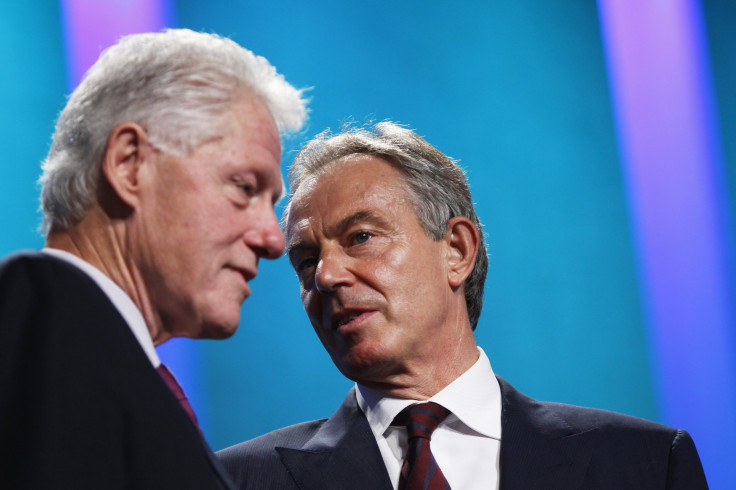Bill Clinton Warned Tony Blair About Iraq Four Years Before Coalition Toppled Saddam Hussein's Regime

Former U.S. President Bill Clinton warned British counterpart Tony Blair in late 1999 about potential trouble with Iraq, according to previously confidential documents outlining private conversations between the two from 1997 to 2000. The partially redacted documents, which were obtained from the Clinton Presidential Library and published by the BBC Thursday, also talk about the difficulty of the Northern Irish peace process and the rise of Russian President Vladimir Putin.
Clinton warned Blair of potential trouble in Iraq that "may not happen while I'm in office, but it will for you” and “it could become a real nightmare for you."
Clinton left office in January 2001 while Blair, who came to power in May 1997, stayed in office for a little more than 10 years. The U.S. and Britain invaded Iraq in March 2003 and the war officially ended (for them) in December 2011.
A BBC FOI uncovers a conversation between PM Blair and President Clinton after the death of Princess Diana pic.twitter.com/Tak4CfcfLw
— Neil Henderson (@hendopolis) January 7, 2016
While Clinton’s warnings over Iraq occurred more than 15 years ago, they add another layer of intrigue over a region that is still struggling to deal with the fallout from the toppling of previous authoritarian leader Saddam Hussein in 2003 and the progressive rise of extremists such as the Islamic State group. The country is currently in a state of civil war as ISIS, regional tribes and government troops battle for control.
Blair also has been accused of taking the U.K. to war in Iraq under false pretenses, which include using the purported existence of weapons of mass destruction. The former British leader has been subject to citizen’s arrests and unprecedented media coverage over his role in the invasion. A six-year inquiry into the United Kingdom and Blair’s role in the war is due to be published next summer by Sir John Chilcot, a member of the British House of Lords.
The documentation details the Irish peace process, in which Clinton and Blair both played a major role, and outlines Clinton’s determination to get a deal done to ensure that the Irish Republican Army (IRA) decommissioned its weapons and began a political dialog with the U.K. government. Most of the discussion around the peace process centered on the leader of the IRA’s political wing Gerry Adams, of whom Clinton said: "I don't know what the real deal is between him and the IRA. It's hard to put pressure on him when you don't know what's going on. It's just bizarre."
Blair also told Clinton Russian leader Putin "has enormous potential" and is "very smart and thoughtful. I think we can do a lot of good with him.”
© Copyright IBTimes 2024. All rights reserved.












